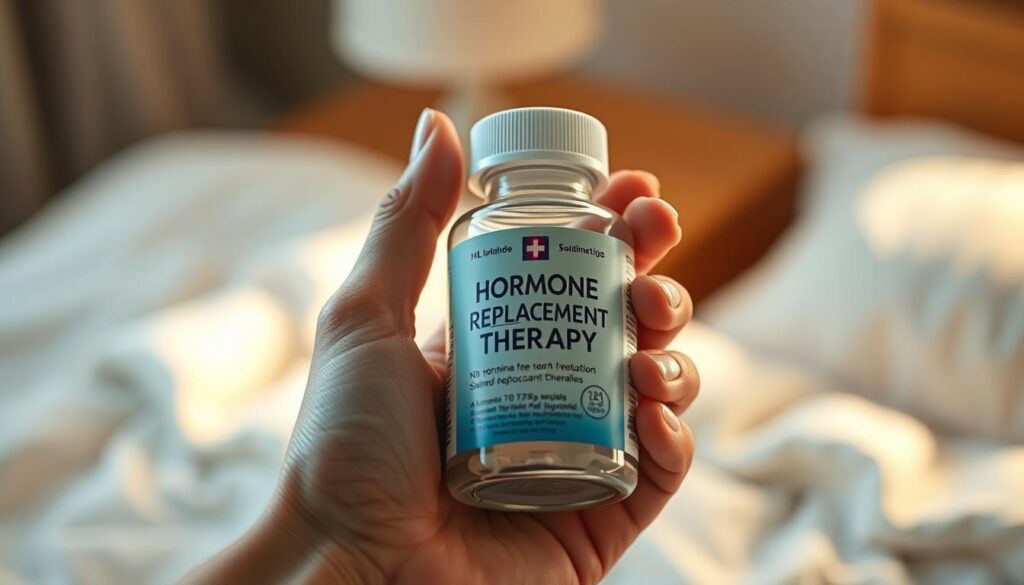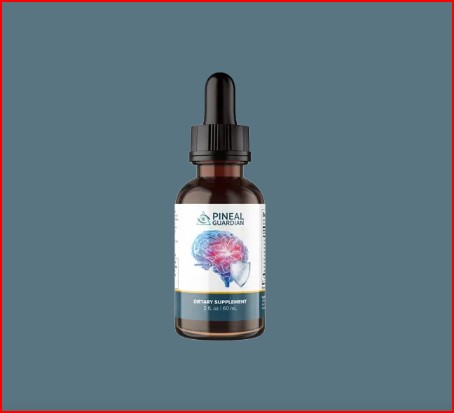Menopause Pills: Find Relief for Hot Flashes,Night Sweats & More
Are debilitating hot flashes and night sweats ruining your day? Many women struggle with menopause relief. Finding the right menopause treatment can feel like a big challenge.
There are many menopause pills and treatments out there. You can choose from hormone replacement therapy to natural supplements. Each has its own good points and possible downsides.
It’s important to know about these options to manage your symptoms well. This article will guide you through the different menopause treatments. It aims to help you make a smart choice for your health.
Key Takeaways
- Various menopause treatment options are available.
- Hormone replacement therapy is a common menopause relief method.
- Natural supplements offer an alternative to traditional menopause pills.
- Each treatment has its benefits and possible risks.
- Informed decision-making is key to managing menopause symptoms effectively.
Understanding Menopause and Its Symptoms
Menopause is a big change for women, causing physical and emotional symptoms. It’s when menstruation stops and hormone levels change. These changes can affect a woman’s health and happiness.
The Physiological Changes During Menopause
Menopause brings big hormonal shifts, like a drop in estrogen. This can cause many symptoms, affecting a woman’s life. The Mayo Clinic says these symptoms can be very tough.
Common Symptoms and Their Impact
Menopause symptoms vary, but some are common. Women often experience hot flashes, mood swings, and trouble sleeping.
Hot Flashes and Night Sweats
Hot flashes and night sweats are common symptoms. Hot flashes are sudden warmth, with sweating and flushing. Night sweats happen during sleep, making it hard to rest.
Mood Changes and Sleep Disturbances
Mood swings, like irritability and anxiety, are common. Sleep disturbances, like insomnia, can also happen. These can make mood issues worse and cause discomfort.
Other Physical Symptoms
Other symptoms include vaginal dryness, changes in sex drive, and feeling tired. These symptoms can really affect a woman’s life. It’s important to find menopause support.
Knowing about these symptoms is the first step to managing them. By recognizing them and getting the right support, women can handle menopause better. This helps keep their health in check.
Menopause Pills: An Overview of Treatment Options
Menopause treatment offers many choices, from medicines to lifestyle changes. Women facing menopause symptoms have several ways to ease their discomfort.
Prescription vs. Over-the-Counter Options
There are prescription and over-the-counter (OTC) medicines for menopause. Prescription drugs, like hormone replacement therapy (HRT), are often suggested for serious symptoms. OTC options, like black cohosh and red clover, might help those with milder symptoms.
The North American Menopause Society advises weighing the pros and cons of each choice. Prescription medications are stronger but can have more side effects. OTC options are generally safer but might not work as well.
Hormonal vs. Non-Hormonal Approaches
Hormonal treatments, like HRT, replace missing hormones. Non-hormonal treatments, including some antidepressants and blood pressure drugs, can also help with symptoms.
- Hormone replacement therapy can help with hot flashes and night sweats.
- Non-hormonal options might be better for women with certain health issues.
- Some women might find a mix of hormonal and non-hormonal treatments works best.
Finding the Right Solution for Your Symptoms
Talking to a healthcare provider is key to finding the right treatment. They can help weigh the good and bad of different options. This way, women can make an informed choice.
“The goal of menopause treatment is to alleviate symptoms and improve quality of life. Women should work closely with their healthcare provider to find the most effective treatment plan.”
Exploring different treatments and talking to a healthcare provider can help women find relief. This way, they can improve their overall well-being.
Hormone Replacement Therapy (HRT) Explained
Hormone Replacement Therapy (HRT) is a treatment for menopause symptoms. It adds hormones that decrease as women get older.
The right HRT depends on health and symptoms. The Mayo Clinic says a tailored approach is best. It aims to benefit while reducing risks.
Estrogen-Only Therapy
Women without a uterus get estrogen-only therapy. It helps with hot flashes and night sweats.
Combination Hormone Therapy
Women with a uterus get estrogen and progesterone together. This lowers the risk of endometrial cancer.
Different Forms of HRT Administration
HRT comes in many forms. This makes it easier for women to find what works best for them.
Pills and Tablets
Oral HRT is easy to take. It’s a simple way to manage symptoms.
Patches, Creams, and Other Delivery Methods
There are also patches, creams, and vaginal rings. They offer different ways to ease symptoms.
| HRT Form | Administration Method | Benefits |
|---|---|---|
| Pills/Tablets | Oral | Easy to administer, convenient |
| Patches | Transdermal | Bypasses liver metabolism, steady release |
| Creams/Gels | Topical/Vaginal | Localized relief, less systemic absorption |
Knowing about HRT types and forms helps women choose the best treatment. It’s all about finding what fits their health and needs.
Benefits of Hormone Replacement Therapy for Symptom Relief
Hormone replacement therapy (HRT) offers many benefits for menopause symptoms. It helps address some of the most bothersome symptoms. This improves the quality of life for many women.
Effectiveness for Hot Flashes and Night Sweats
HRT is very effective in reducing hot flashes and night sweats. These are common and distressing symptoms of menopause. By adding estrogen and sometimes progesterone, HRT stabilizes hormonal levels.
Impact on Mood and Sleep Quality
HRT also improves mood and sleep quality. Many women feel better emotionally and are less irritable. It helps reduce symptoms that disrupt sleep, leading to better sleep quality.
Additional Health Benefits Beyond Symptom Relief
HRT offers more than just symptom relief. It helps maintain bone density, reducing osteoporosis risk. Some studies suggest it may also improve heart health, depending on the type of HRT and the woman’s health.
Overall, HRT is a valuable option for women going through menopause. It provides symptom relief and may offer long-term health benefits.
Non-Hormonal Prescription Medications for Menopause
Menopause symptoms can be tough to handle. But, non-hormonal prescription meds offer a good alternative. They’re great for women who can’t or don’t want to use hormone therapy.
SSRIs and SNRIs for Hot Flash Relief
SSRIs and SNRIs are mainly for depression. But, they also help with hot flashes in menopause. The Mayo Clinic says they can really help some women.
Gabapentin and Clonidine
Gabapentin and clonidine are other non-hormonal choices. Gabapentin can cut down on hot flashes. Clonidine might make them less frequent and less severe.
Emerging Prescription Options
New non-hormonal meds for menopause are being studied. These could give women more options than HRT. As research goes on, doctors will have more ways to help with menopause symptoms.
Women should talk to their doctors about these options. This way, they can find the best treatment for themselves.
Natural and Herbal Supplements for Menopause Relief
Women often look to natural and herbal supplements during menopause. These options can help ease symptoms and work well with other treatments.
Black Cohosh and Phytoestrogens
Black cohosh is a top choice for menopause relief. It may help lessen hot flashes and night sweats. Phytoestrogens, found in plants like soy and red clover, act like estrogen and can ease symptoms too.
Benefits of Black Cohosh:
- May reduce frequency and severity of hot flashes
- Potential to improve mood and sleep quality
Evening Primrose Oil and Red Clover
Evening primrose oil is rich in GLA, an omega-6 fatty acid. It may help with hot flashes and breast tenderness. Red clover, with its high phytoestrogen content, is also popular for symptom relief.
Key Components of Evening Primrose Oil:
- Gamma-linolenic acid (GLA)
- Anti-inflammatory properties
Vitamins and Minerals for Menopause Support
Vitamins and minerals are key for menopause support. They help manage symptoms and support overall health.
Vitamin E and B Vitamins
Vitamin E protects cells from damage. B vitamins, like B6 and B12, help with energy and mood swings.
Calcium and Vitamin D
Calcium and vitamin D are vital for bone health. They’re important during menopause to prevent osteoporosis.
| Nutrient | Role in Menopause Support | Food Sources |
|---|---|---|
| Calcium | Maintains bone density | Dairy products, leafy greens |
| Vitamin D | Supports calcium absorption | Fatty fish, fortified dairy |
| Vitamin E | Antioxidant properties | Nuts, seeds, vegetable oils |
It’s important to talk to a healthcare provider before using natural and herbal supplements. This ensures they are safe and effective, even when used with other treatments.
Potential Risks and Side Effects of Menopause Pills
It’s important to know the risks of menopause pills before choosing a treatment. Options like hormone replacement therapy (HRT), non-hormonal meds, and natural supplements can have side effects and risks.
HRT Risks and Who Should Avoid It
Hormone replacement therapy helps with symptoms but has health risks. The Mayo Clinic says women with breast cancer, blood clots, or stroke should not take HRT. Women over 60 or with heart disease risk should be careful.
- Increased risk of breast cancer with combination HRT
- Higher risk of blood clots and stroke
- Potential for gallbladder disease
Side Effects of Non-Hormonal Medications
Non-hormonal meds for menopause symptoms can have side effects. SSRIs and SNRIs might cause nausea, headaches, or appetite changes. Gabapentin can make you feel drowsy and dizzy. Talking to a healthcare provider about these side effects is key.
Safety Concerns with Natural Supplements
Natural supplements seem safer but can be risky. Black cohosh, for example, can harm the liver in some people. Supplements are not as regulated as medicines, so quality can vary. Always check with a healthcare provider before starting any supplement.
Knowing the risks and side effects helps women choose better treatments for menopause. It’s vital to consider the benefits and risks and talk to a healthcare provider about any concerns.
Lifestyle Changes to Complement Menopause Treatment
Healthy lifestyle choices can help manage menopause symptoms better. Menopause is a natural process, but its symptoms can be tough to handle. By making certain lifestyle changes, women can ease symptoms and enhance their life quality.
Dietary Adjustments for Symptom Management
Changing your diet can help manage menopause symptoms. Eating more fruits, vegetables, and whole grains can lessen hot flashes and night sweats. Also, avoiding spicy foods, caffeine, and alcohol can help.
Exercise and Stress Reduction Techniques
Regular exercise, like yoga or brisk walking, can reduce stress and ease symptoms. Stress-reducing activities, such as meditation and deep breathing, also boost well-being.
Sleep Hygiene Practices
Good sleep habits are key for managing menopause symptoms. This means keeping a regular sleep schedule, having a calming bedtime routine, and avoiding screens before bed.
By adopting these lifestyle changes, women can find more relief from menopause symptoms and improve their health.
When to Consult a Healthcare Provider
Knowing when to see a doctor is key to handling menopause well. Menopause is a natural phase, but its symptoms can really affect a woman’s life.
Evaluating Symptom Severity
It’s important to figure out how bad your menopause symptoms are. The Mayo Clinic says symptoms like hot flashes, night sweats, and mood swings can be different for everyone. Talking to a healthcare provider can help find the right treatment.
| Symptom | Mild | Moderate | Severe |
|---|---|---|---|
| Hot Flashes | Less than 1 per day | 1-2 per day | More than 2 per day |
| Night Sweats | Occasional | Frequent | Almost nightly |
Important Questions to Ask Your Doctor
When you talk to your doctor, ask the right questions. Ask about hormone replacement therapy (HRT), other treatments, and lifestyle changes that can help.
“The key to effective menopause management is a personalized treatment plan that addresses the unique needs and health status of each woman.” – Dr. Jane Smith, OB-GYN specialist.
Regular Monitoring and Follow-up Care
Regular visits to your doctor are important. They help check if your treatment is working and make changes if needed. This keeps your symptoms under control and reduces side effects.
Latest Research and Advancements in Menopause Treatment
New discoveries in menopause treatment are changing women’s health. Researchers are working hard to create better, more tailored treatments.
New Medications in Development
New medicines are being made to help with menopause symptoms. These include non-hormonal therapies for hot flashes and night sweats. Clinical trials are looking at new compounds that might work better with fewer side effects.
Personalized Medicine Approaches
Personalized medicine is key in treating menopause. It means treatments are based on your genes and health history. This might include genetic testing to find the best treatment for you.
Ongoing Clinical Trials
Clinical trials are vital for improving menopause treatment. They test new therapies, like novel hormone therapies and non-hormonal alternatives
The future of menopause treatment is bright. With ongoing research, we’re getting closer to better symptom relief. As we learn more about menopause, we’ll have more ways to manage it.
Conclusion: Creating Your Personalized Menopause Relief Plan
Creating a plan for menopause relief means looking at your symptoms, health, and treatment choices. Knowing about different menopause relief products helps women make smart choices for their care.
Managing menopause well involves checking how different treatments work. This includes hormone therapy and non-hormonal meds, plus making lifestyle changes to ease symptoms.
It’s key to talk to a healthcare provider to find the best treatments for you. They can help you make a plan to manage symptoms and improve your life quality.
Being proactive and informed about managing menopause can lessen symptoms’ impact. This way, women can keep their overall health in good shape.






Post Comment